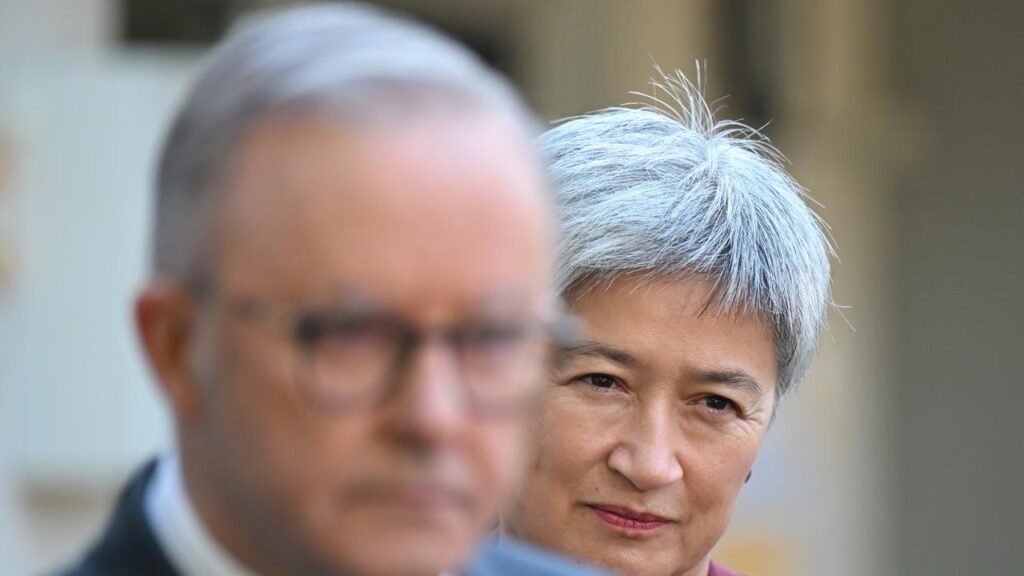Israeli minister sanctions dubbed too little, too late
Andrew Brown |

The sanctioning of two Israeli ministers by Australia has been labelled a “slap on the wrist” by a prominent pro-Palestine advocate.
The federal government has imposed sanctions on Israel’s National Security Minister Itamar Ben-Gvir and Finance Minister Bezalel Smotrich in a co-ordinated move with Canada, New Zealand, Norway and the United Kingdom.
The sanctions were applied for “extremist violence and serious abuses of Palestinian human rights”, with the pair barred from travelling to Australia and any assets in the country being frozen.
The measures prompted condemnation from the US, with Secretary of State Marco Rubio saying it would do little to achieve a ceasefire in the conflict.
Australian Palestine Advocacy Network president Nasser Mashni welcomed the move but said it was too little, too late.
“These sanctions are crumbs, tossed by the Australian government 613 days too late,” he said.
“This is a small step, but Australia must stop pretending that a slap on the wrist for two fascist ministers is justice.”
Mr Mashni said further sanctions, similar to measures imposed against Russian officials for the country’s invasion of Ukraine, need to be applied.
“Australians of good conscience demand real action. That means a full array of sanctions,” he said.

Prime Minister Anthony Albanese has doubled down on the need for the sanctions, despite blowback from Israel and the US.
Opposition Leader Sussan Ley says the government has overstepped its bounds.
“It is unprecedented to, as a government, take actions, sanctions on members of a democratically elected government,” she told Sky News on Thursday.
“The US has explained that these actions are actually counterproductive to securing that ceasefire and that peace, and the government should be paying attention to that.”
Shadow attorney-general Julian Leeser, who is Jewish, says the style of sanctions imposed by the government was normally reserved for human rights abusers and terrorists.
“The big question here is whether this is a new standard that will be applied to the public comments of officials from other countries,” he told ABC Radio.
“If this is the new standard, it will have serious implications for our international relations.”.
Middle East politics professor at Deakin University Shahram Akbarzadeh said the sanctions were a consequential step.
“It is significant and it sends a signal that Australia is becoming more resolute in pursuing its foreign policy agenda of a two-state solution,” he told AAP.
“Australia would not have done this on its own, but when Australia sees other allied countries taking this move, that allows Australia to feel comfortable in numbers.”

Israel’s ambassador to Australia Amir Maimon said the sanctions were concerning and unacceptable.
“These ministers are part of a government that operates under the principle of collective responsibility, making such measures unreasonable,” he said in a statement.
“The Israeli government will convene early next week to consider and determine our official response to these actions.”
Prof Akbarzadeh said the sanctions imposed by the Western allies would not alter how Israel would conduct itself in the conflict.
“Israel has shown it does not take international opinion seriously, and this move is unlikely to deter the Israeli government in the way they’re prosecuting the war in Gaza,” he said.
The latest eruption of war in Gaza was sparked by militant group Hamas killing about 1200 people and abducting 250 others in Israel on October 7, 2023.
Israel’s military response has since killed almost 55,000 mostly civilian Palestinians in Gaza, local health authorities say.
Australia in July also sanctioned Israelis involved in attacking and killing Palestinians in the West Bank.
Australia has listed Hamas as a terrorist entity since 2001, according to the federal government’s national security website.
AAP


